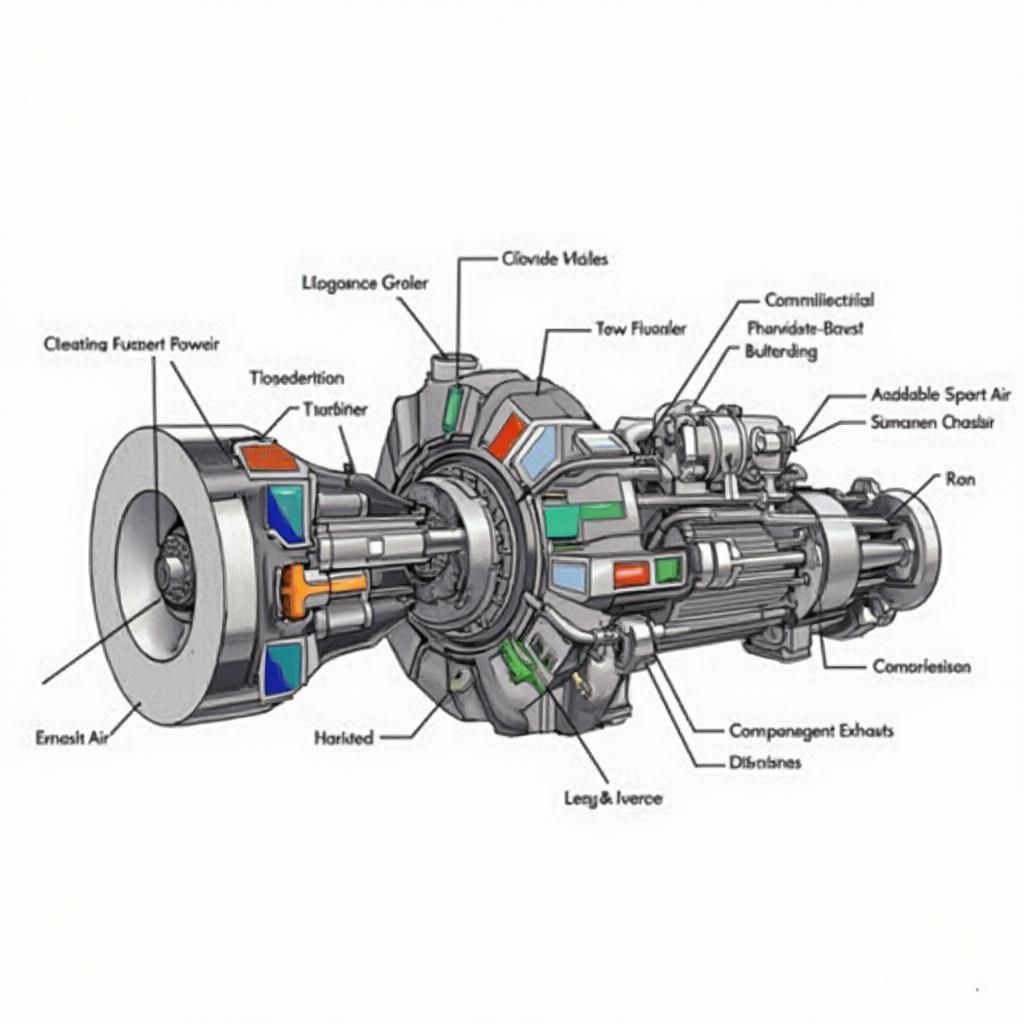Your cart is currently empty!

Driving a Turbo Car Tips: Mastering the Art of Boost
Driving a turbocharged car is a thrilling experience. The surge of power when the turbo spools up is addictive, but mastering the art of boost requires understanding how these engines work and adopting the right driving techniques. This guide will provide you with essential Driving A Turbo Car Tips to enhance performance, longevity, and overall driving enjoyment.
Understanding Your Turbocharged Engine
Before diving into driving techniques, let’s briefly discuss how turbochargers work. A turbocharger uses exhaust gases to spin a turbine, which in turn drives a compressor. This compressor forces more air into the engine, resulting in a significant power increase. However, this process creates heat and stress on engine components.  Turbocharger Explained: How it Works
Turbocharger Explained: How it Works
Driving a Turbo Car Tips for Performance and Longevity
Here are some key driving a turbo car tips to maximize your turbocharged car’s performance and lifespan:
-
Warm-up and Cool-down: Allowing your engine to warm up properly before pushing it hard is crucial. This gives the oil time to circulate and reach optimal operating temperature, lubricating critical components. Similarly, a cool-down period after spirited driving allows the turbocharger to return to a safe temperature, preventing oil coking.
-
Smooth Gear Changes: Avoid abrupt gear changes, especially when the turbo is spooling. Smooth shifts minimize stress on the drivetrain and help maintain consistent boost pressure.
 Smooth Gear Shifting Technique for Turbo Cars
Smooth Gear Shifting Technique for Turbo Cars -
Avoid Low RPM Lugging: Driving at low RPMs in a high gear puts excessive strain on the engine and turbocharger. Downshift to a lower gear to keep the engine within its power band and avoid lugging.
-
Proper Boost Management: Learn to modulate the throttle to control boost pressure. Avoid flooring the accelerator in low gears as this can lead to wheelspin and excessive stress on the drivetrain. tips for driving a turbo car
-
Regular Maintenance: Turbocharged engines require more frequent maintenance than naturally aspirated engines. Follow the manufacturer’s recommended service intervals for oil changes, air filter replacements, and spark plug replacements. tips for driving a turbocharged car
How Do I Drive a Turbo Car in Different Conditions?
Driving a turbocharged car requires adjustments based on various conditions:
-
City Driving: In city driving, focus on smooth acceleration and avoid sudden bursts of speed. tips for adding performance parts to a car
-
Highway Driving: On the highway, maintain a steady speed and utilize the turbo’s power for safe overtaking maneuvers.
-
Mountain Driving: When driving uphill, downshift to keep the engine in its power band and avoid lugging. good driving tips for diesel cars
“Proper maintenance is paramount for turbocharged engines. Regular oil changes with high-quality synthetic oil and timely filter replacements can significantly extend the life of your turbo,” advises John Miller, a seasoned automotive engineer with over 20 years of experience.
What are the Common Mistakes to Avoid When Driving a Turbo Car?
-
Ignoring Warm-up and Cool-down: This can lead to premature turbo failure and other engine problems.
-
Over-revving: Excessive revving, especially when the engine is cold, puts unnecessary stress on the turbocharger.
-
Using Low-Quality Fuel: Using low-quality fuel can lead to detonation and damage the engine.
“Understanding how a turbocharger works and adopting the right driving habits will not only enhance your driving experience but also prolong the life of your turbocharged engine,” adds Sarah Chen, a performance driving instructor with a specialization in turbocharged vehicles. tips for driving a turbo diesel car
Conclusion
Driving a turbo car offers a unique and exhilarating experience. By following these driving a turbo Car Tips, you can enjoy the thrill of boost while ensuring the longevity and performance of your turbocharged engine. Remember, respecting the mechanics of your car is key to a rewarding driving experience.
FAQ
- What is turbo lag?
- How often should I change the oil in my turbo car?
- What are the signs of a failing turbocharger?
- Can I install a turbocharger on a non-turbo car?
- What is a blow-off valve?
For any further assistance, please contact us via WhatsApp: +1(641)206-8880, Email: [email protected] or visit us at 456 Pine Avenue, Toronto, ON M5V 2J4, Canada. We have a 24/7 customer support team.

Leave a Reply